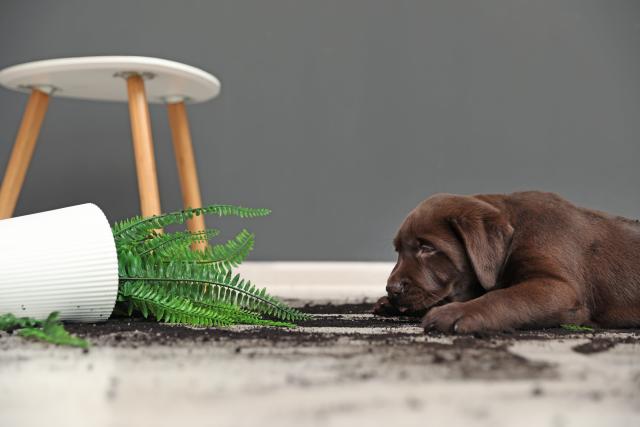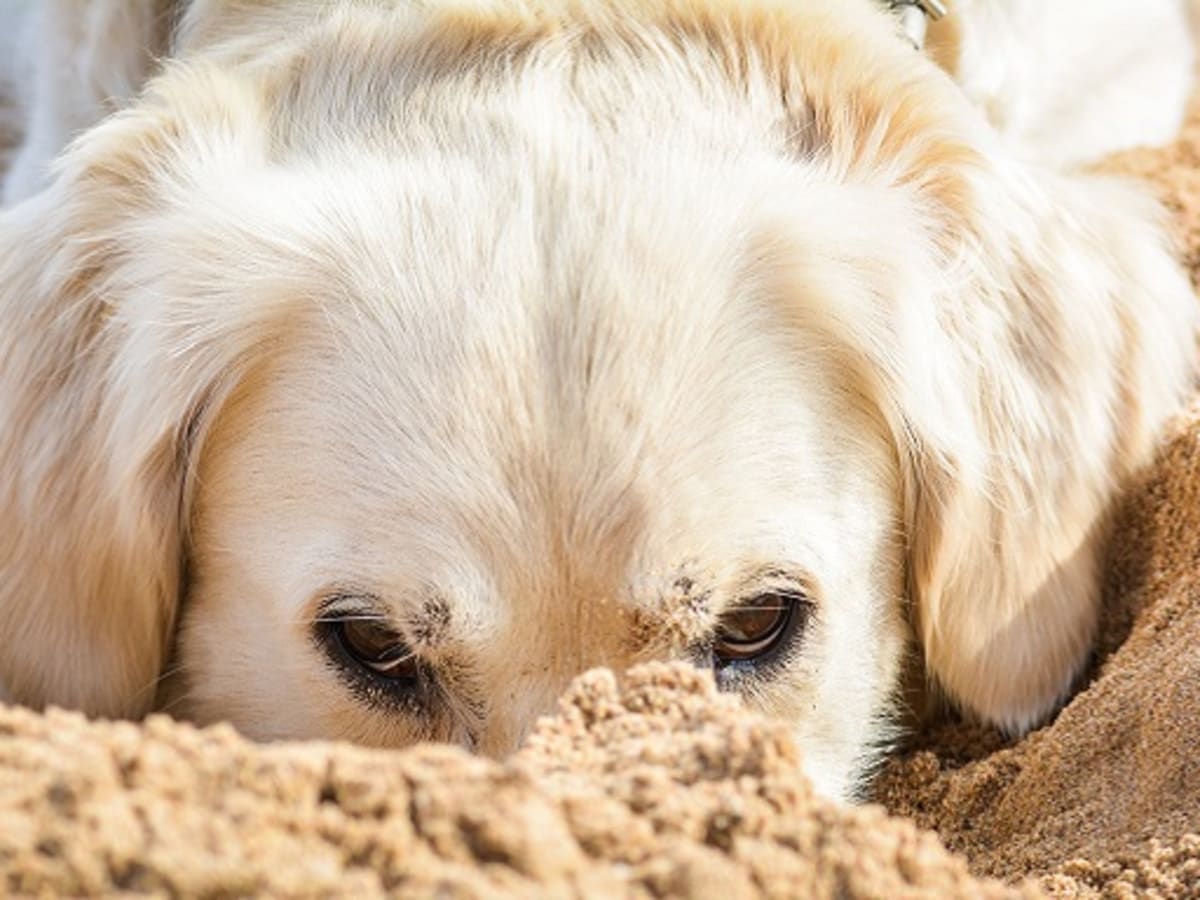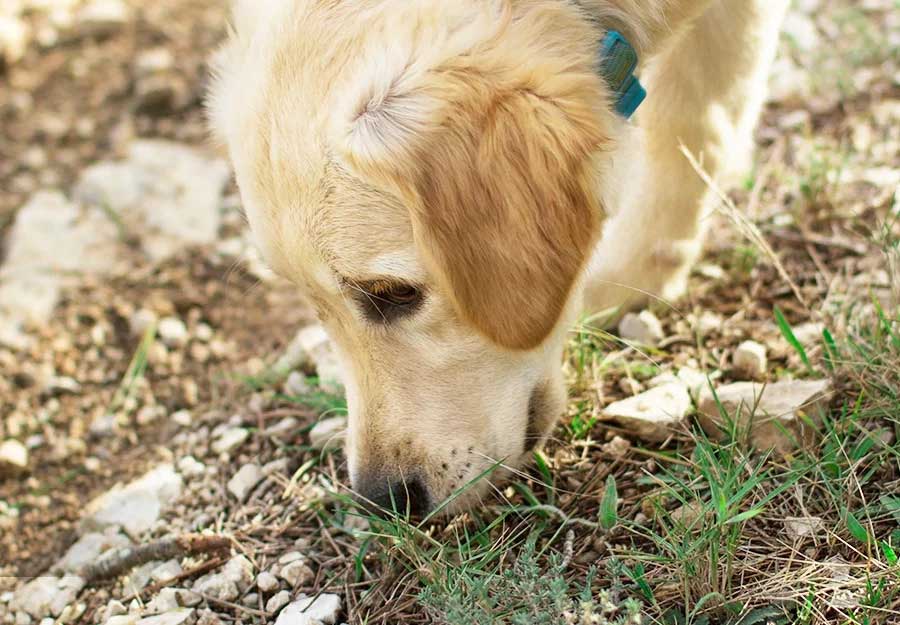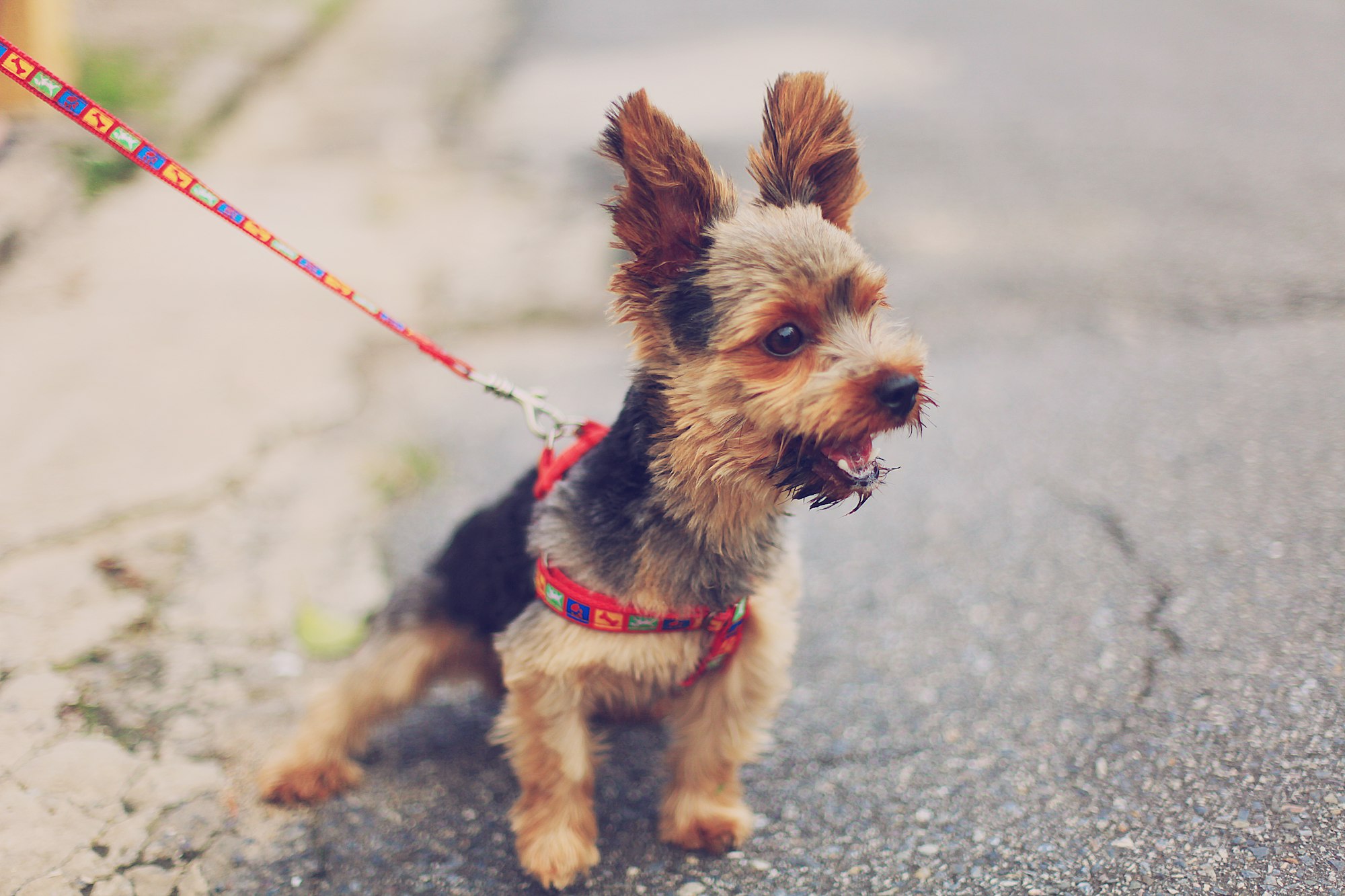Dogs are known for their quirky behaviors, but one that often leaves owners perplexed is their tendency to eat dirt. While this behavior may seem unusual, it's not uncommon, and there are several reasons why dogs engage in it. In this article, we'll delve into the intriguing world of dogs and dirt consumption, exploring the various factors that contribute to this behavior.

The Instinctual Nature of Dogs
Ancestral Instincts
Dogs are descendants of wolves, and this ancestry plays a significant role in their behavior. Wolves, and by extension, dogs, would occasionally consume dirt or soil in the wild. This ancestral instinct can still manifest in domesticated dogs.
Seeking Nutrients
One of the primary reasons dogs eat dirt is to obtain essential nutrients. Soil can contain minerals and trace elements that dogs might be lacking in their diet. When their bodies sense a deficiency, they may resort to dirt consumption as a way to address this nutritional gap.
Natural Remedies
Interestingly, some dogs instinctively eat dirt when they have an upset stomach. The gritty texture of soil can help soothe gastrointestinal discomfort. This behavior is akin to humans reaching for ginger ale or crackers when feeling queasy.
Nutritional Deficiencies
In the world of canine behavior, the phenomenon of dogs eating dirt cannot be disentangled from the profound influence of nutritional deficiencies. Understanding this facet is pivotal in comprehending why our furry companions resort to consuming earthy matter.
Lack of Minerals: The Driving Force
Dogs are inherently wired to seek essential nutrients vital for their well-being. When the canine organism senses a shortage of critical minerals like calcium and iron in its diet, it does not hesitate to turn to dirt as a pragmatic solution.
The act of eating dirt, in such instances, is a manifestation of their innate survival instincts. It's a primal response to bridge the nutrient gap, demonstrating the dog's remarkable ability to adapt and self-regulate.

Coprophagia: A Nexus with Dirt Consumption
For dogs inclined toward coprophagia, the consumption of feces, the leap from feces to soil is not a far one. The underlying principle remains the same - an attraction to unorthodox textures and flavors. Nutritional insufficiencies can amplify this behavior, as the dog's craving for minerals extends to the earth itself.
Pica Syndrome: The Complexity of Canine Behavior
Pica syndrome, a condition marked by an appetite for non-food items, further reinforces the link between nutritional deficits and dirt consumption. This syndrome, which can be driven by both physiological imbalances and psychological factors, underscores the intricate nature of dogs' dietary habits.
In the realm of dogs and dirt eating, it is evident that nutritional deficiencies play a pivotal role. Addressing this aspect is not only a matter of curbing a peculiar behavior but also safeguarding the overall health and well-being of our canine companions.
Behavioral Reasons
Beyond the realm of biology and nutrition, the peculiar behavior of dogs eating dirt can also be attributed to their intricate psychology. Understanding the behavioral aspects of this phenomenon is crucial in deciphering the enigma.
Stress and Anxiety: A Coping Mechanism
Just like humans, dogs experience stress and separation anxiety. In moments of heightened emotional turmoil, some dogs resort to dirt eating as a coping mechanism. The gritty texture of soil provides a distraction and momentary relief from their inner discomfort.
This behavior serves as a testament to the sensitivity and adaptability of our canine companions. It's their way of managing emotional turmoil when words are beyond their reach.
Boredom and Curiosity: The Quest for Stimulation
Dogs are naturally curious beings. When faced with monotony or a lack of mental stimulation, they often seek unconventional activities to satiate their curiosity. Digging and eating dirt become avenues for exploration, alleviating their boredom.
This behavior underscores the importance of mental engagement for dogs. Keeping them intellectually stimulated can deter them from resorting to such unusual pastimes.
In summary, the behavioral reasons behind dogs eating dirt reflect the complexity of their emotional landscape. Stress, anxiety, and boredom can lead them to engage in this behavior as a means of coping and seeking stimulation. Understanding these facets not only deepens our connection with our canine companions but also empowers us to provide them with a more enriching and fulfilling environment.
Health Issues
The act of dogs consuming dirt is not merely a curious quirk but often a signal of underlying health issues. In this section, we delve into the medical aspects of this behavior, shedding light on the potential health concerns that prompt our canine companions to eat dirt.

Gastrointestinal Problems: A Source of Discomfort
Underlying gastrointestinal problems can be a significant catalyst for dogs seeking solace in dirt consumption. When dogs experience indigestion, inflammation, or other digestive discomforts, they may instinctively turn to the earth in search of relief.
Their choice to eat dirt might seem unconventional to us, but it reflects their instinctual drive to alleviate discomfort. It's a self-soothing mechanism embedded in their evolutionary history.
Dental Issues: A Painful Dilemma
Dental health problems can also be a contributing factor. A sore mouth or gum irritation can lead dogs to seek relief by chewing on soil. The gritty texture may offer momentary comfort to their oral discomfort.
Worm Infestations: The Internal Culprit
Internal parasites, such as worms, can wreak havoc on a dog's digestive system. In some cases, dogs may consume dirt in an attempt to self-medicate, as they are instinctively driven to find ways to purge these unwelcome intruders from their bodies.
The presence of worms and other internal parasites can significantly impact a dog's overall health, underscoring the importance of regular veterinary check-ups and deworming protocols.
Understanding the health issues associated with dogs' dirt consumption is imperative for responsible pet ownership. Recognizing the signs and addressing the underlying problems is essential not only to curb the behavior but also to ensure the well-being of our beloved canine companions.
Environmental Factors
In the complex tapestry of canine behavior, environmental factors play a pivotal role in shaping why dogs eat dirt. These external influences provide crucial context to the seemingly perplexing behavior of our furry companions.
Dirty Surroundings: The Inadvertent Ingestion
One significant environmental factor is the cleanliness of a dog's living space. If a dog's environment is consistently dirty or contaminated, they may inadvertently ingest dirt while exploring or playing. This inadvertent consumption occurs as they navigate through unclean areas, and dirt becomes an unintended addition to their exploratory repertoire.
As responsible pet owners, maintaining a clean and hygienic living space for our dogs is paramount in mitigating the influence of dirty surroundings on their dirt-eating habits.
Scent Attraction: The Allure of Earthly Aromas
Dogs possess an extraordinary sense of smell, far more acute than our own. This heightened olfactory perception can lead them to be attracted to scents in the soil, such as those left behind by other animals or decaying organic matter.
In essence, the scent attraction factor adds a layer of complexity to their dirt-eating behavior. It's a sensory exploration driven by their extraordinary abilities, reminding us of the richness of their sensory world.
Understanding these environmental influences is essential in comprehending why dogs eat dirt. Maintaining a clean and safe living space for our canine companions and recognizing the allure of scents in the soil can aid in managing and addressing this intriguing behavior while ensuring the overall well-being of our beloved pets.
Social Learning
In the realm of dog behavior, the phenomenon of dirt consumption doesn't always originate in isolation. Social learning, a powerful influencer, can cause this behavior to cascade through a group of dogs, leaving pet owners both baffled and intrigued.
Copying Other Dogs: Peer Influence
Dogs are inherently social creatures, often living in packs or forming close-knit social bonds. In such settings, it's not uncommon for one happy dog to initiate a behavior, like eating dirt, and for other dogs to follow suit. This mimicking behavior is a testament to the social dynamics within canine communities.
The act of copying observed behaviors is not unique to dogs; it's a common trait shared among many species, including humans. Dogs, in their social learning process, take cues from their peers and integrate these behaviors into their own repertoire.
Peer Influence in Dog Parks and Social Settings
Dog parks and other social settings provide ample opportunities for dogs to observe and imitate each other's actions. If one dog starts digging and eating dirt, it can serve as a catalyst for others to engage in the same behavior. This chain reaction, fueled by curiosity and the desire to fit in, is a prime example of how social learning can perpetuate seemingly unconventional actions.
As pet owners, it's crucial to recognize the power of peer influence in shaping our dogs' behaviors. While dogs may learn from their peers, responsible ownership involves monitoring and guiding their actions to ensure their well-being and appropriate conduct within the broader canine community.

Preventing Dirt Consumption
Responsible pet ownership extends beyond understanding the reasons behind dogs eating dirt; it involves taking proactive steps to prevent and manage this behavior. Here, we delve into strategies that can help conscientious pet owners mitigate the tendency of their canine companions to consume soil.
Providing a Balanced Diet: The Foundation of Health
A well-balanced diet is the cornerstone of canine health. To deter dirt consumption driven by nutritional deficiencies, ensure your dog's diet meets their specific needs. Consult with a veterinarian to formulate a nutritionally complete meal plan tailored to your dog's age, breed, and health status.
Behavioral Training: Redirecting Unwanted Behavior
Behavioral training can play a pivotal role in curtailing dirt consumption. Utilize positive reinforcement techniques to redirect your dog's attention away from soil and toward more appropriate activities. Consistency and patience are key in this process.
Regular Veterinary Check-ups: Detecting Underlying Issues
Scheduled veterinary check-ups are crucial to monitor your dog's health. Regular examinations can detect underlying health issues, such as gastrointestinal problems or dental concerns, which may be contributing to dirt consumption. Early intervention can prevent these issues from exacerbating.
When to Seek Professional Help
If your dog's dirt consumption persists despite your efforts or is accompanied by concerning symptoms, it is prudent to seek professional help. Here are key indicators that should prompt you to consult with a veterinarian:

Persistent Dirt Eating: If your dog continues to consume dirt habitually, it may signify an underlying issue that requires medical attention.
Related Health Issues: If dirt consumption is accompanied by symptoms like vomiting, diarrhea, or unusual lethargy, it is imperative to consult a veterinarian promptly.
Behavioral Concerns: If your dog's dirt consumption is causing distress or affecting their overall well-being, consider consulting a professional dog behaviorist who can provide specialized guidance.
Customized Care: Each dog is unique, and the reasons behind their dirt consumption can vary. Seeking professional help ensures that your dog receives customized care and targeted solutions.
Conclusion
In summary, while the sight of your dog eating dirt may raise eyebrows, it's essential to understand that there are various reasons behind this behavior. Dogs may consume dirt due to instinctual reasons, nutritional deficiencies, behavioral factors, health issues, environmental influences, or social learning. As responsible pet owners, it's our duty to ensure our furry companions receive the care and attention they need to lead happy and healthy lives.
FAQs
- Q1: Can eating dirt harm my dog?
Eating small amounts of dirt is generally harmless, but persistent dirt consumption may indicate underlying issues that should be addressed.
- Q2: Is it normal for puppies to eat dirt?
Puppies are naturally curious and may explore their environment, including tasting dirt. However, excessive dirt eating should be monitored.
- Q3: What should I do if my dog continues to eat dirt?
If your dog's dirt eating is frequent or concerning, consult with a veterinarian to rule out health issues and receive guidance on behavior modification.
- Q4: Can I use supplements to prevent dirt eating?
While supplements can help address nutritional deficiencies, it's essential to consult with a veterinarian before introducing any supplements to your dog's food diet.
- Q5: How can I make my dog's environment cleaner?
Regularly clean your dog's living space, provide clean water, and ensure they have a safe and engaging environment to reduce boredom-related dirt consumption.






